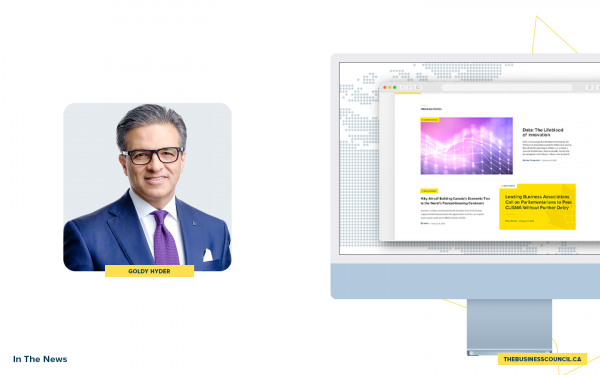Canada needs the right data rules to have a healthy digital sector
We need a model that protects the data of individuals and companies, but also allows them to exchange and share it freely in a transparent and competitive marketplace. If this sounds familiar, it’s because it’s the same approach we use to manage the rest of the economy.
You can’t see it, feel it, smell it or taste it, but data has become one of the most important resources in the 21st century economy. The data revolution is powering industries across Canada, spawning new ones, and influencing almost every aspect of our daily lives.
In 2000, when I introduced Canada’s first electronic privacy law, the world was generating more than a billion gigabytes of data a year. Now, we produce almost twice that much every day. Not surprisingly, the data revolution is raising fundamental questions – such as how we collect and protect data, and how we manage an economy that depends so heavily on it.
That’s why I welcome this month’s launch of national consultations on how we can build a digital economy that inspires trust, encourages adoption and serves all Canadians.
The desire to store and analyze information is as old as human civilization. What has changed is our capacity to collect, manipulate and make sense of massive amounts of data, of every conceivable type. With the right technologies and proper analysis, organizations today can make better, more timely decisions, creating enormous value and overcoming problems that once seemed intractable.
Pipeline companies are using data to detect potential leaks before they happen. Doctors are diagnosing diseases before patients notice any symptoms. Transportation systems are getting people to work faster. Tractors on the farm are driving themselves, using information from past harvests to plant higher-yield crops. The potential applications, and the associated benefits, are limitless.
With data now so valuable and pervasive, we need to think hard about the rules that govern how we access, use and share it. A range of public policy issues are at stake, from privacy and cybersecurity to competition and domestic innovation.
Canadian business leaders take these issues seriously. Protecting and securing data is a top priority in boardrooms across the country. Companies have a clear interest in ensuring that data is collected and managed properly, and that it doesn’t end up concentrated in the hands of just a few players. Without trust and choice in the marketplace, Canada will not reap the full potential of the data economy.
Getting our policies right will be tricky. It may be tempting to look for solutions abroad, such the European Union’s new General Data Protection Regulation, or how some Asian countries are supporting their tech industries by keeping foreign competitors out. We should always be open to lessons from others, but we need to start with an assessment of Canada’s unique needs and circumstances.
It might also help if we can agree on some basic principles. My own view is that we need a model that protects the data of individuals and companies, but also allows them to exchange and share it freely in a transparent and competitive marketplace. If this sounds familiar, it’s because it’s the same approach we use to manage the rest of the economy. It’s also the philosophy behind our current privacy law, which has served the test of time and inspired similar legislation around the world — including what Europe is doing today.
Canada is fortunate to be starting from this position of strength. The task now is to look for ways to build on our model and fill in any gaps. By launching national consultations, the federal government is helping to chart the way forward toward a more responsible, inclusive and innovative data economy.









